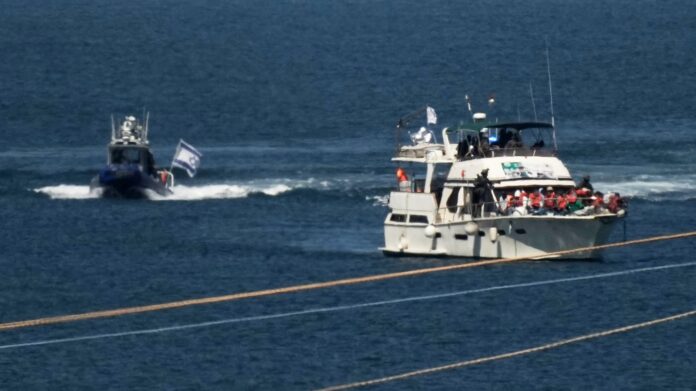In a bold act of solidarity, around 45 civilian vessels sailing under the banner of the Global Sumud Flotilla have departed from the Turkish port of Arsuz in Hatay Province. Their course is set toward Gaza — a direct response to Israel’s interception of a previous flotilla. The mission, composed of boats from at least 44 nations, aims to protest and break the longstanding blockade imposed on the Gaza Strip. Israel, however, has already moved to intercept several of these craft in international waters.
Departure From Turkey Amid Rising Tensions
The flotilla set sail from Arsuz, a coastal town in southern Turkey, under heightened scrutiny. Organizers emphasize that the voyage is strictly civilian and non-violent, intended as a symbolic humanitarian mission rather than a militarized confrontation. The decision to launch this new initiative came after Israel’s naval forces interdicted earlier vessels attempting to reach Gaza.
The name “Sumud” draws from the Arabic word for steadfastness or perseverance, reflecting the movement’s ethos of resilience and peaceful resistance. The flotilla draws participants from more than 40 countries, each contributing boats and volunteers determined to challenge what they call an illegal siege of Gaza.
Objectives and Symbolism of the Mission

Rather than carrying bulk humanitarian supplies, the flotilla’s ships often host symbolic aid — medical supplies, food parcels, and messages of solidarity. Their greater goal is to open a maritime corridor into Gaza as a means of reminding the world of the humanitarian crisis afflicting the enclave.
Organizers argue that the mission challenges the moral legitimacy of the Israeli blockade and reframes Gaza not merely as a conflict zone, but as a territory under siege whose residents depend on outside access for life-sustaining aid. In radio messages broadcast before interception, flotilla spokespeople rejected Israeli demands to redirect supplies through official land routes, insisting that bypassing the naval closure is a legal and ethical necessity.
Israeli Interception: Legal and Operational Dimensions
Israel has long maintained that its naval blockade of Gaza is justified on security grounds — specifically, to prevent arms smuggling into the territory. It argues that all sea-based attempts to breach the blockade are violations of a lawful military cordon. Critics, however, contend that intercepting civilian vessels in international waters risks violating international maritime law.
In the most recent operations, Israeli naval forces have boarded several flotilla vessels, detained activists, and escorted ships to Ashdod. As of now, multiple boats have already been intercepted before reaching Gaza. Some flotilla organizers assert that the boarding occurred well beyond Israel’s 12-nautical-mile territorial limit, raising questions of legal overreach.
In one notable case, the Marinette, a Polish-flagged vessel, was boarded at roughly 42.5 nautical miles from Gaza, making it the final ship seized. Israel claims that the detainees are being processed for deportation rather than criminal prosecution.
International Reactions and Diplomatic Fallout
News of the flotilla and its interception has sparked protests and diplomatic backlash across multiple continents. Demonstrations in solidarity with Gaza and against Israeli actions have appeared in European capitals, Latin America, and parts of Asia. Turkish officials, in particular, have vocally condemned the interceptions and vowed further maritime actions.
In Turkey’s coastal provinces, local authorities plan to dispatch additional vessels to join the solidarity flotilla, flying both Turkish and Palestinian flags. The government has also moved to cut trade ties with Israel and to bar Israeli-affiliated ships from Turkish ports.
Meanwhile, Israel’s public diplomacy continues to defend its actions as necessary to maintain national security. It has offered to receive aid via approved bulk-transfer channels and disputed the humanitarian nature of the flotilla, accusing organizers of partial affiliation with militant groups — a claim denied by the activists.
Outlook and Broader Implications
The Turkish-launched flotilla underscores how maritime activism is becoming a renewed front in the Gaza conflict. Even when intercepted, these missions generate visibility and spark public debate about the ethics and legality of blockades.
But as Israel steps up its naval enforcement, flotilla organizers face a narrowing window. The ability to challenge the blockade may depend on international pressure, legal challenges, and diplomatic leverage. The final question is whether these civilian ships can meaningfully pierce what Israel regards as a byzantine security buffer — or whether their value lies mainly in drawing attention to Gaza’s suffering.
In the days ahead, further flareups may occur at sea. Observers will be watching whether Turkey’s support escalates into direct confrontation, whether detained activists are repatriated or prosecuted, and whether this maritime journey alters the terms of the Gaza crisis.


